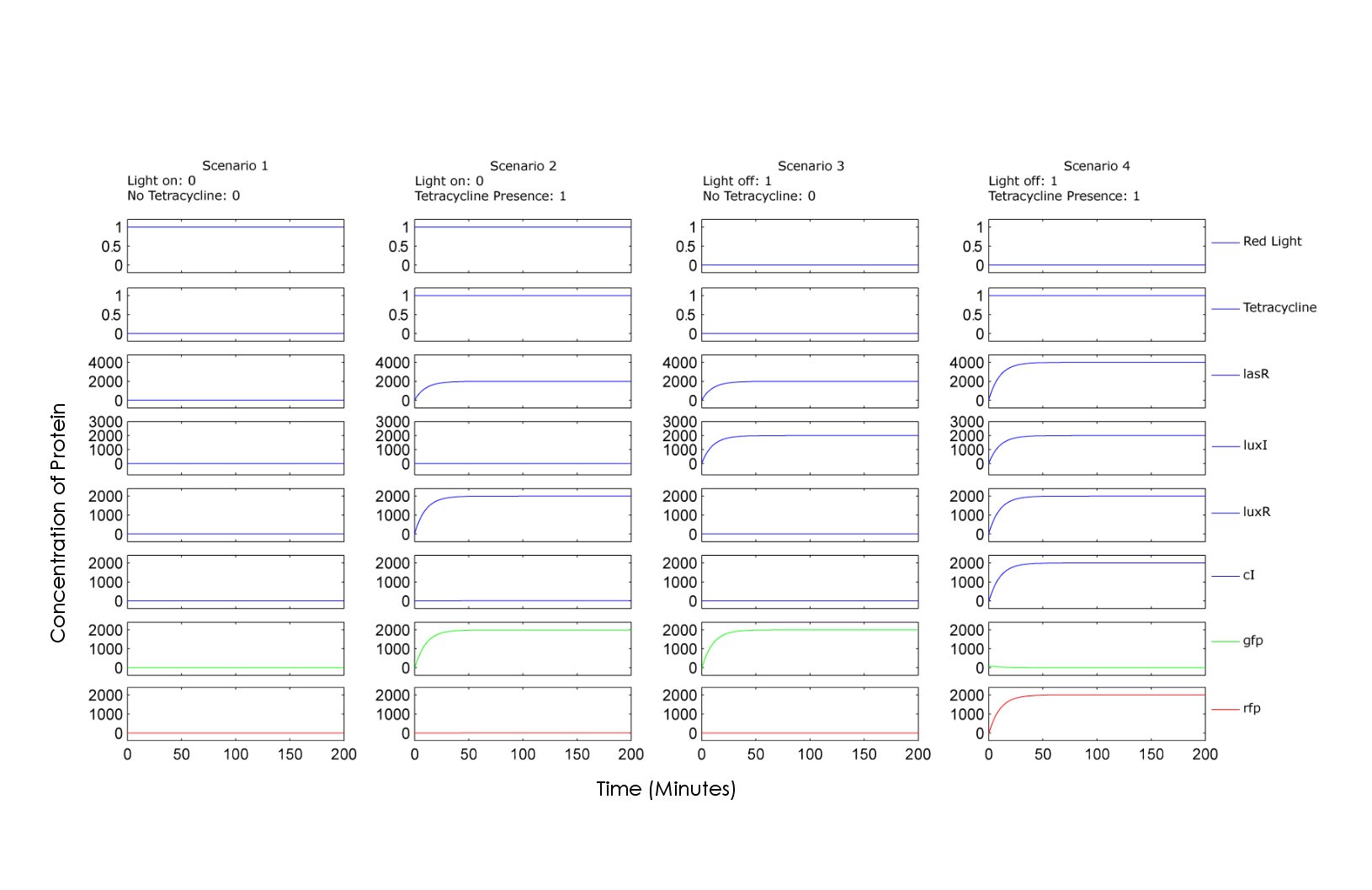Modelling
From 2007.igem.org
(Difference between revisions)
(→Mathematical Modelling) |
(→Mathematical Modelling) |
||
| Line 1: | Line 1: | ||
===Mathematical Modelling=== | ===Mathematical Modelling=== | ||
| - | To create a predictive model, we used a set of differential equations to graph the approximate concentrations of each chemical with respect to time. These graphs are intended to illustrate the relative concentrations of the chemicals involved for each possible combination of | + | To create a predictive model, we used a set of differential equations to graph the approximate concentrations of each chemical with respect to time. These graphs are intended to illustrate the relative concentrations of the chemicals involved for each possible combination of input A and input B, red light and tetracycline respectively. |
| + | |||
| + | Scenario 1 of the graph illustrates the concentration of chemicals when adding 0+0; scenario 2 illustrates the 0+1 case; scenario 3, the 1+0 case; and scenario four, the 1+1 case. | ||
[[Image:UW_equation.jpg|300px|center]]<br> | [[Image:UW_equation.jpg|300px|center]]<br> | ||
Revision as of 14:06, 26 October 2007
Mathematical Modelling
To create a predictive model, we used a set of differential equations to graph the approximate concentrations of each chemical with respect to time. These graphs are intended to illustrate the relative concentrations of the chemicals involved for each possible combination of input A and input B, red light and tetracycline respectively.
Scenario 1 of the graph illustrates the concentration of chemicals when adding 0+0; scenario 2 illustrates the 0+1 case; scenario 3, the 1+0 case; and scenario four, the 1+1 case.
Home

